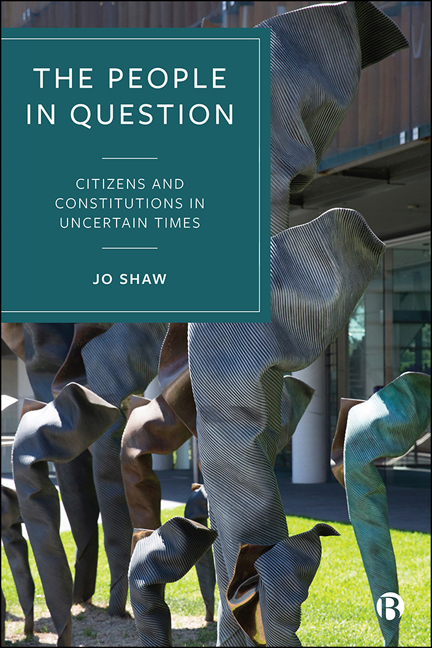PART III - Citizenship under Pressure: National and Global Tensions
Published online by Cambridge University Press: 18 March 2021
Summary
This part of the book aims to exploit the current conjuncture in order to explain why it has been important to gain additional insights into the constitutional law/citizenship interface. These insights go beyond the observation, mapping and interpretation that have formed the predominant mode of analysis hitherto. Two particularly significant challenges to citizenship at the level of state or national constitutions stem from the political forces of populism and from trends towards globalization and other ‘beyond the state’ dynamics. These challenges highlight a variety of different ways in which the state-based model of constitutional citizenship has been put under pressure.
Populism is a style of politics that can operate to close down the discursive space within which citizens can operate as free and equal political agents. It can be said to eat away at those elements of the citizenship/constitutional law interaction that emphasize citizenship as a universal status, as a result of the populists’ appropriation of the notion of ‘the people’. It ramps up the split between the ideal of equality that citizenship seeks to embody and the reality of a sharp divide between insiders and outsiders. Combined with other ideological stances such as nationalism, populism poses a threat to liberal democratic orders, and this can tear at the fabric of a conception of state-based citizenship premised on the ideal of equality.
Globalization, meanwhile, describes the intensification of interactions or integration between countries, people and other actors such as companies, potentially without regard to the existence or disciplines of state borders and the legal orders within them. Globalization challenges the citizenship/constitutional law interaction, because it puts into question the singularity of that relationship, pointing to multiple membership interactions between people and various legal orders at the national, supranational and international levels that need to be described and conceptualized. This pressure from above on the state is often paired with pressure from below (the substate level), as well as horizontally from other state-level legal orders likewise simultaneously challenged by global forces. In that context, it seems better that our focus should be the broader topic of ‘the shifting spatialities of citizenship’ rather than just ‘the impact of globalization on citizenship’. The fragmentation of governance arrangements is the watchword in this context.
- Type
- Chapter
- Information
- The People in QuestionCitizens and Constitutions in Uncertain Times, pp. 179 - 180Publisher: Bristol University PressPrint publication year: 2020



